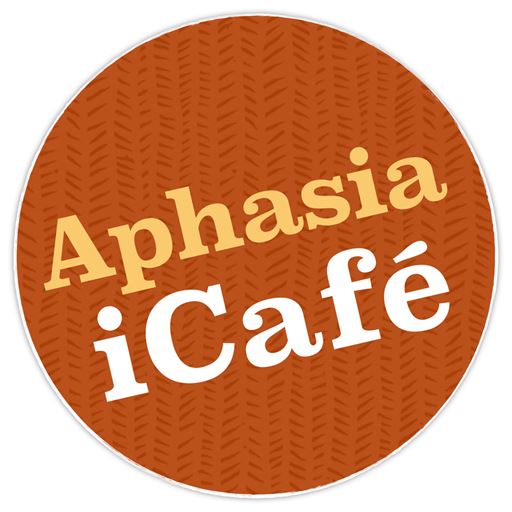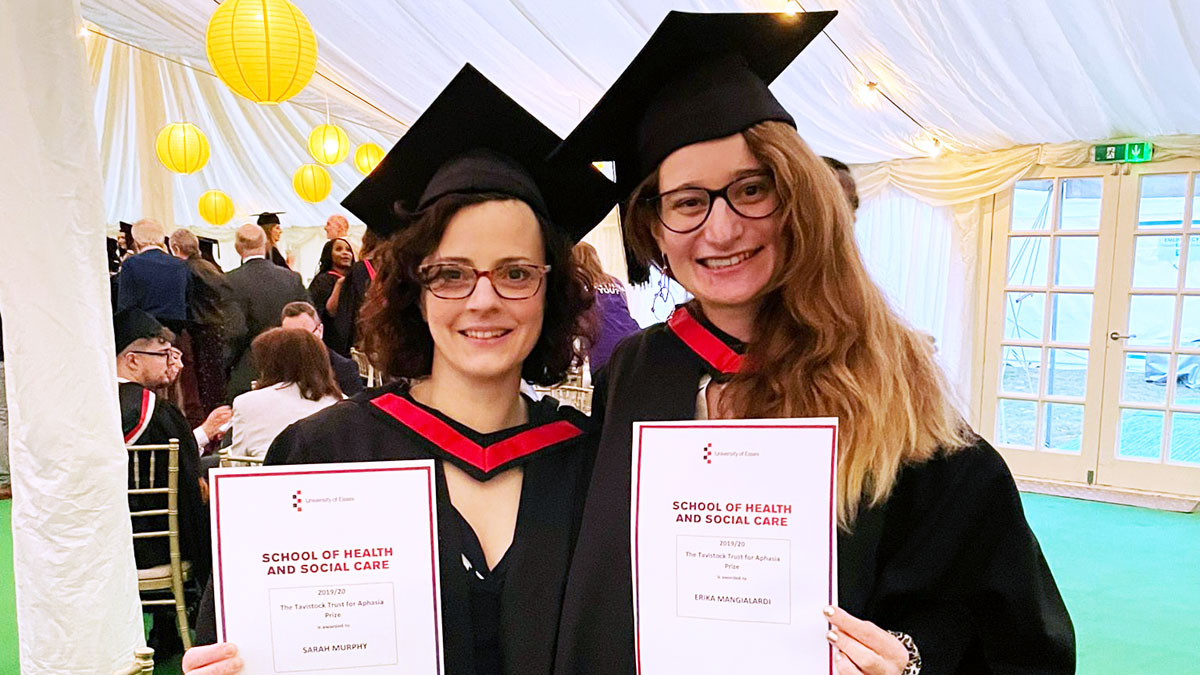Participants might be living independently, with their families or they might be living in care homes, and they join iCafe sessions from the UK, Ireland, India, Australia and the United States. Some have English as a second language.
As well as conversation sessions the Aphasia iCafe has offered a book club – preparing aphasia friendly materials and audio versions. This has been run by Irish Specialist SLT Fiona O’Neill.
Erika said: “It was great that even people with severe Aphasia could participate and express their opinions in non-verbal ways through gestures, body language and facial expressions.”
Erika emphasises that they aim to meet the individual needs of participants: “Our eight groups are tailored to individual needs. Dynamics are very different in each group. People might prefer discussing music, movies and tv or like games and quizzes. Some like competitions, others prefer open conversation.
“In the groups – apart from having general discussions, there are opportunities to discuss their journeys. The fact they can share their journey or what they struggle with and see the progress they have made and compare their experiences with someone else creates a really emotional, but powerful session.”
Erika said the pandemic had shown how services like Zoom could help people who might normally be isolated: “Times are changing, and I think the pandemic opened up a new era and we need to value the teletherapy tools we have.
“Offering an online service which allows people who find it difficult to join face-to-face groups is a great resource – people can get together and socialise without having to travel.
“People joined us in 2020 and are still with us today, which shows how much they value it.
“People bond and build rapports with each other in the sessions. People being from different countries allows people to get to know different cultures, learn about different cuisines and sparks conversations.
“The groups are mixed, and this allows people with milder difficulties to help others fostering a supportive environment.
“It also helps people with more severe difficulties by showing them that they can improve as they are with people who have been through the same journey.
“Most importantly it’s a safe and fun place for everyone who wants to join. One of the things that everyone mentions is humour. We ask people why they enjoy the sessions, and they tell us they had a laugh and they enjoyed it – that is so important.
“Family members tell us that it makes a real difference to people who live in isolation as they have communication or physical difficulties, and they don’t normally get to socialise. They tell us that taking part in the sessions makes people more motivated and gives them more drive.”
So, what does Erika think of the media attention for Bruce Willis’ announcement?
She said: “I think one of the problems which we have been experiencing is that Aphasia is an invisible disability and is not commonly known by the public.
“A figure like Bruce Willis has shone a spotlight on the condition which really raises public awareness.
“This gives motivation to friends and family of people with aphasia to find out more about this condition. It’s a big step and a great educational opportunity for everyone.
“Aphasia is a disorder that can affect language, communication, and quality of life. After this news I hope people living with communication difficulties and their carers will seek support from SLTs, local groups and virtual communication groups to find out strategies and new ways to adapt communication. As SLTs always say: ‘It takes two to talk!’.
“And… if Bruce wants to join the Aphasia iCafe there’s always a space available for him!”
You can contact the Aphasia iCafe via email at: icafegrouponzoom@gmail.com
Keep up to date on the latest news on their Twitter feeds @AphasiaIcafe and @aphasiabookclub


.jpg?mh=500&mw=500&hash=6568B6C9CCF5290A596BEF6678B6AD0E)




